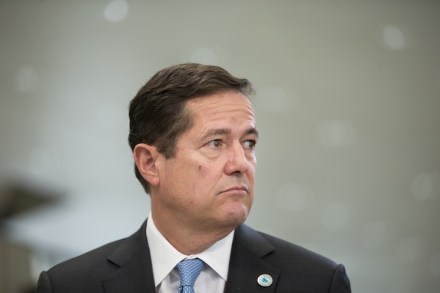A whistleblower mystery that illuminates the inner turmoil of the banking sector
What troubled places banks have become, I thought as I listened to two news stories, one concerning a formal reprimand for Barclays chief executive Jes Staley after he tried to uncover the identity of a ‘whistleblower’, the other trailing new revelations about the Libor scandal. But both, I’m afraid, were so badly explained that the majority of listeners must have been none the wiser. The Staley episode is mysterious. Anonymous letters to Barclays directors made allegations about a recently recruited senior executive: Staley felt this was an ‘unfair personal attack’, believed ‘honestly but mistakenly’ that it was permissible for him to identify the author, and tried to do so with




















